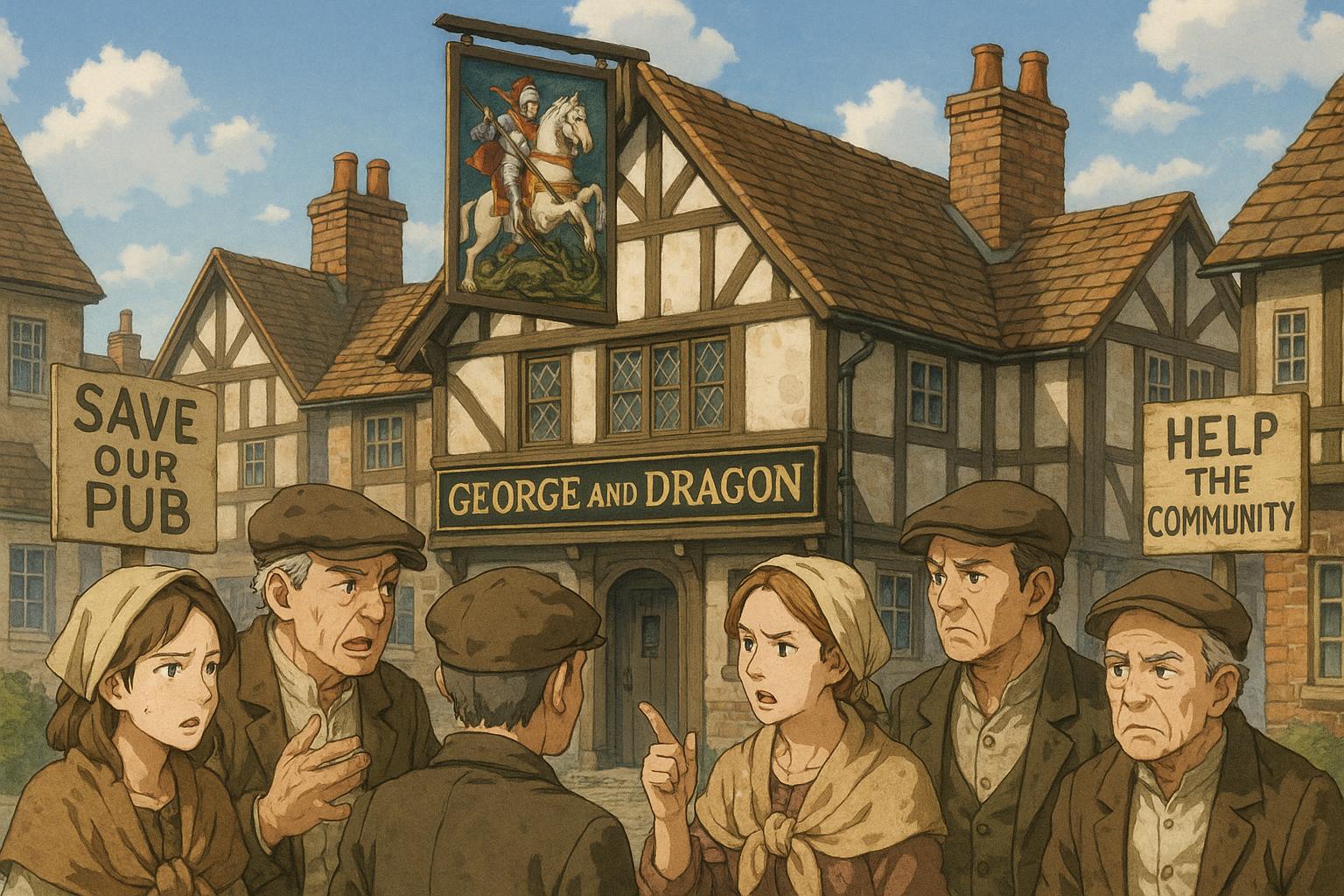Plans to convert the historic George and Dragon pub in Erlestoke into residential properties have stirred significant community concern, particularly from local groups advocating for the pub's continued operation. Wiltshire Parish Council recently rejected proposals by Chaffinch Pub Company to build a beer garden, citing fears that converting vital parking spaces into garden areas would lead to dangerous congestion on the adjacent main road. This decision reflects broader anxieties about balancing community needs with the practicalities of preserving a pub that has struggled in both usage and management.
The community group Erlestoke Hub Ltd expressed strong opposition to the proposed change of use from a public house to residential units, underscoring the pub's role as a social hub within the village. Keith Lewcock, chairman of Erlestoke Hub, articulated these concerns, stating, “The Erlestoke Hub, a community benefit society, objects very strongly to the change of use of the George and Dragon public house to dwelling houses.” The group has highlighted the pub’s historical significance and the importance of maintaining communal spaces, especially as rural pubs face increasing challenges.
The pub's listed status complicates the situation further. Proponents of the conversion argue that the proposed changes would not alter the building’s external appearance, which would protect it from potential deterioration while simultaneously addressing local housing shortages. The plan involves transforming the main building into two one-bedroom and one two-bedroom homes, as well as creating additional one-bedroom units in the adjacent stable block. This dual-purpose approach aims to marry the preservation of a cherished local landmark with urgent housing needs.
However, the local planning authority's reluctance to sanction these changes stems from previous encounters with the pub's viability. The George and Dragon has seen a decline in business attributed to factors like poor management, high rental costs, and an inability to effectively utilise the available stable block for tourist accommodation. As reported, the community group deemed the asking price for the building upon its relisting to be “too high,” complicating efforts for community ownership and rehabilitation of the pub.
In a related context, pub owner Paul Gardner has indicated plans to appeal the council's decision to deny the beer garden. He argues that the existing parking access is fraught with safety hazards and believes the change will enhance the overall safety and appeal of the establishment. Gardner has also pointed out a perceived inconsistency, noting that another pub he manages, the Bath Arms in Crockerton, was granted permission to eliminate parking spaces under similarly stretched circumstances.
Amidst these disputes, the community remains divided. Some residents echo the council's concerns about parking and safety, while others feel strongly about retaining access to the pub as a community focal point. The debate around the George and Dragon thus exemplifies the intricate dynamics faced by rural pubs in England, where economic viability, community identity, and local governance intersect in challenging ways. As the planning discussions unfold, the outcome will likely reflect not only the fate of a single establishment but also the broader issues confronting community spaces in rural settings.
Reference Map:
- Paragraph 1 – [1], [2], [4]
- Paragraph 2 – [1], [3], [6]
- Paragraph 3 – [5], [6], [7]
- Paragraph 4 – [3], [4], [5]
- Paragraph 5 – [1], [2]
Source: Noah Wire Services
